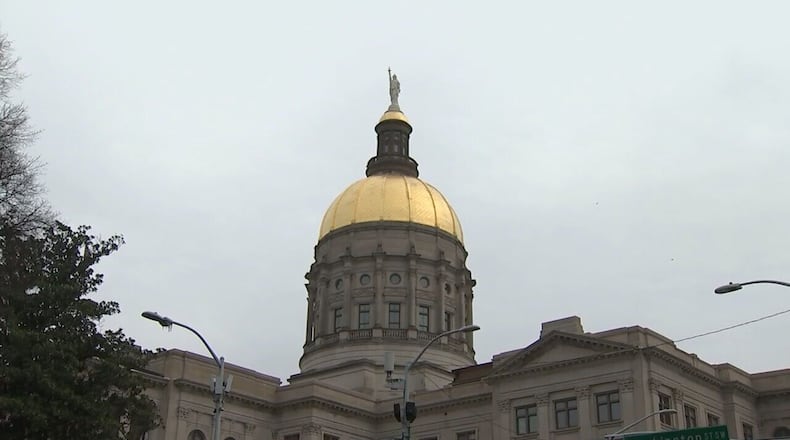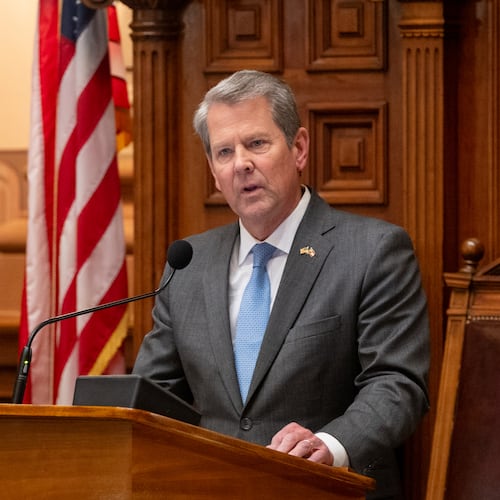Two bills that would prevent the public from obtaining information about government employees passed a Georgia Senate committee Monday over the objection of open government advocates.
Senate Bill 215 would require local governments to remove personally identifiable information about public employees from all property records on the internet if employees request it. Senate Bill 176 would make it illegal for any individual or business to make public personally identifiable information about judges, law enforcement officers, prosecuting attorneys or public defenders with the intent of exposing them to harassment or harm or with reckless disregard to the possibility of such consequences.
Proponents say the measures would protect government employees from harassment. Sen. Matt Brass, R-Newnan, said information about where police officers live was posted online during recent protests over Atlanta’s proposed police training center.
“We don’t want people to be able to track these folks down and cause harm,” Brass told the Senate Government Oversight Committee on Monday. “There’s no good that’s going to come out of looking for these people.”
Opponents say the bills could increase the cost of maintaining records and possibly lead some governments to eliminate online access to some government records altogether. They say the bills also could leave the public in the dark about wrongdoing by government employees.
“The way SB 215 is written likely means the public will be unable to determine if a public employee is paying their share of property taxes or whether they are getting a sweetheart deal,” said Richard Griffiths, a board member of the Georgia First Amendment Foundation. “Sale of land and property involving government employees will become enormously complicated and opaque.”
The Georgia Open Records Act makes most government records available to the public upon request. It’s premised on the idea that open records allow the public to “evaluate the expenditure of public funds and the efficient and proper functioning of its institutions.” Open government advocates say open records allow the public to uncover government waste and abuse that could otherwise be shrouded in secrecy.
There are limited exceptions to public disclosure under the law, such as medical records that could constitute an invasion of privacy. But nearly every legislative session brings new proposals to exempt records from public disclosure. And this year is no different.
Threats against government employees in Georgia and elsewhere have gained national attention in recent years. After then-President Donald Trump falsely claimed the 2020 election was stolen, state and local election officials in Georgia received numerous threats.
In New Jersey, a man shot and killed the son of a federal judge after tracking down the judge’s address online.
Brass and Sen. Jason Esteves, D-Atlanta, the sponsor of SB 176, said their bills are needed to protect public employees from harassment and harm. Esteves said his bill is tailored to police and those in the judicial system who are “often in some very charged, hostile situations and need to be protected.”
Griffiths said the bills could prove burdensome for local governments. He cited a 2020 New Jersey law designed to prohibit the disclosure of personally identifiable information about retired and current law enforcement officers, judges, prosecutors and their families.
He said the law led government agencies across the state to shut down records databases entirely for fear of inadvertently disclosing information about protected employees. He said local governments in Georgia could take a similar approach.
Griffiths said the bills also could deprive the public of information they need to hold government officials accountable.
“Instead of being exposed and shamed, the mayor of a city could simply go on not paying the water bills on the properties he and his family owns,” he said.
Esteves said he has tailored SB 176 to avoid unintended consequences. For example, under an amendment approved by the committee, governments would violate the law only if they knowingly disclose information about protected public employees.
The committee approved both bills unanimously. They now go to the Rules Committee — chaired by Brass — which will determine whether they get a vote by the full Senate. Brass indicated the bills could be combined into a single bill.
About the Author
Keep Reading
The Latest
Featured




